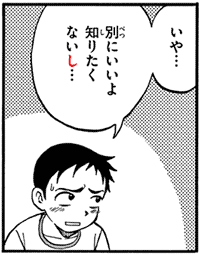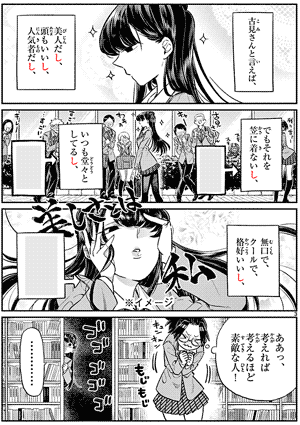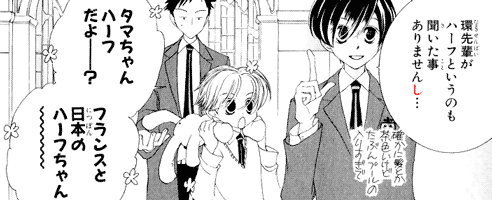In Japanese, the shi し particle is a conjunctive particle used to express the reason, or reasons, for something. More generally, it's used to emphasize facts regarding something.
For example: in douse hima da shi どうせ暇だし, the shi particle expresses that douse hima da, "I'm free," in the sense of "I don't have anything better to do anyway," is the reason for doing something.
Not to be confused with the homonyms: shi し, the ren'youkei 連用形 form of suru する, shi 死, "death," or shi 四, the number "four."
Grammar
The shi し particle comes after the predicative form of words and acts as a conjunction.
- kirei da shi
綺麗だし
Since [she] is pretty.- kirei da 綺麗だ
To be pretty. - A na-adjective plus the da だ copula.
- kirei da 綺麗だ
- kawaii shi
可愛いし
Since [she] is cute.- kawaii 可愛い
To be cute. - An i-adjective with copulative ~i ~い suffix.
- kawaii 可愛い
- moteru shi
モテるし
Since [she] is popular with guys.- moteru モテる
To be popular romantically. - A verb.
- moteru モテる
The basic usage would be to say the reason or an argument supporting a statement or a decision, BEFORE saying that statement. For example:
- watashi wa hima da shi, tetsudatte ageru yo
私は暇だし、手伝ってあげるよ
I am free, so [I] will help you.
Since I'm free, [I] will help you.- hima 暇
Free. In the sense of not busy.
Having nothing to do.
- hima 暇
Sometimes, however, in Japanese a conjunctive clause can come after its matrix. This works pretty much like dislocation. Observe:
- tetsudatte kureru?
手伝ってくれる?
Will [you] help [me]? - ii yo, douse hima da shi
いいよ、どうせ暇だし
Fine, since I've got nothing to do anyway.
- Context: Nishikata 西片 is asked whether he wants to know the answer of something.
- iya...
いや・・・
[No... I mean...] - betsu ni ii yo
別にいいよ
[It's fine.] - shiritakunai shi...
知りたくないし・・・
[I] don't want to know...
The shi し particle can also string multiple subordinate clauses together.
Sometimes, this means that the two things, the two reasons, are opposing things: one thing that should happen, one thing that impedes it from happening, and the effect of this impediment.
For example(大辞林 第三版):
- okane wa aru shi, jikan wa aru shi, eiga demo miyou
お金はあるし、時間はあるし、映画でも見よう
Money, [we] have, time, [we] have, let's go watch a movie, or something.- demo でも
But.
Or something.
- demo でも
- asobi ni wa ikitai shi, hima wa nai shi, omoshirokunai
遊びには行きたいし、暇はないし、面白くない
To play, [I] want to go, free, [I] am not, it's not fun.
I want to go play, but I don't have time, that's not fun.
Although most of the time shi し expresses a reason, it's also possible for shi し to be used to list, and emphasize, facts regarding something.
- Context: a girl talks about Komi-san 古見さん.
- Note: the panels with arrows aren't part of what she's saying, and have been censored.
- Komi-san to ieba,
古見さんと言えば、
Komi-san is,- to ieba と言えば
If [you] were to say [A, you would say B.]
Used to describe A by listing its prominent features.
- to ieba と言えば
- bijin da shi,
atama mo ii shi,
ninkimono da shi,
美人だし、頭もいいし、人気者だし、
[She] is beautiful, [she] is also smart, [she] is popular,- atama ga ii 頭がいい
Literally "head is good."
To be smart.
- atama ga ii 頭がいい
- demo sore wo
kasa ni kinai shi,
でもそれを笠に着ないし、
But [she] doesn't "wear that as a hat,"- Just like wearing a hat protects you from rain, the expression also means, in Japanese, to abuse one's authority to get away with doing whatever one wants.
- In order words, she's saying that Komi-san doesn't abuse the fact that she's beautiful and popular for her own personal gain.
- itsumo doudou to
shiteru shi,
いつも堂々としてるし、
[She] always [acting] dignified,- doudou 堂々
Dignified. Majestically. Proudly. - to と particle - adverbializer.
- shiteru してる
A contraction of shite-iru している, "to be doing." See i-nuki-kotoba い抜き言葉. - Literally: always doing dignified. Always doing things in a dignified manner.
- doudou 堂々
- mukuchi de,
kuuru de,
kakkou ii shi
無口で、クールで、格好いいし、
[She] is quiet, cool, stylish.- de で copula - te-form of the da だ copula.
- kakkou ii 格好いい
Appearance-good. Good looking. Stylish.
- aa'
ああっ、
Aah, - kangaereba
kangaeru hodo
suteki na hito!
考えれば考えるほど素敵な人!
The more [I] think of it, the more [she] is a fantastic person!- sureba suru hodo ____
すればするほど〇〇
The more you do something, the more ____ it is.
- sureba suru hodo ____
The shi し particle allows the speaker to list facts or reasons to support their statements, but just because a sentence ends with shi し, that doesn't mean the speaker is actually correct in what they're talking about.
- Context: someone said a bunch of stuff that Haruhi ハルヒ never heard about.
- {Tamaki-senpai ga haafu to iu} no mo {kiita} koto arimasen shi...
環先輩がハーフというのも聞いた事ありませんし・・・
That {Tamaki-senpai is a "half,"} too, [I've] never {heard about}.
[I've] never {heard about} {Tamaki-senpai being half-Japanese}, either.- koto arimasen ことありません
To have never. That has never.
- koto arimasen ことありません
- tashika ni kami toka chairoi kedo tabun puuru no hairi-sugi de
確かに髪とか茶色いけどたぶんプールの入りすぎで
It's true [his] hair and [so on] is brown but [it's] probably because [he spent too long inside the pool].- Top signs a character doesn't have two Japanese parents:
- His hair is not black.
- His eyes aren't black, either.
- puuru ni hairi-sugiru
プールに入りすぎる
To enter the pool too much.
To spend too long inside the pool. - de で particle - marks the cause of something.
- Top signs a character doesn't have two Japanese parents:
- Tama-chan φ haafu da yo----?
タマちゃんハーフだよーー?
Tama-chan is half-Japanese, [you didn't know]?- Tama-chan - Tamaki's nickname.
- Honey-senpai uses ~chan with everything.
- {Furansu to Nippon} no haafu-chan~~~~
フランスと日本のハーフちゃん~~~~
A {France and Japan's} "half"-chan.
A person half-French and half-Japanese.- Since haafu ハーフ refers to a person, it can get a honorific suffix like ~chan ~ちゃん.
Above, Haruhi uses the shi し particle to say that she never heard about something, therefore it must be untrue. Subsequently, she's told by Honey-senpai that the thing was actually true: Tamaki-senpai IS half-Japanese, in spite of Haruhi not knowing about it.
Sometimes, the shi し particle comes after the negative mai まい jodoushi 助動詞. For example:
- saru de wa aru-mai shi
猿ではあるまいし
[It's] not like you're a monkey.- So get down from that tree.
References
- し - 大辞林 第三版 via kotobank.jp, accessed 2019-11-03.



No comments: